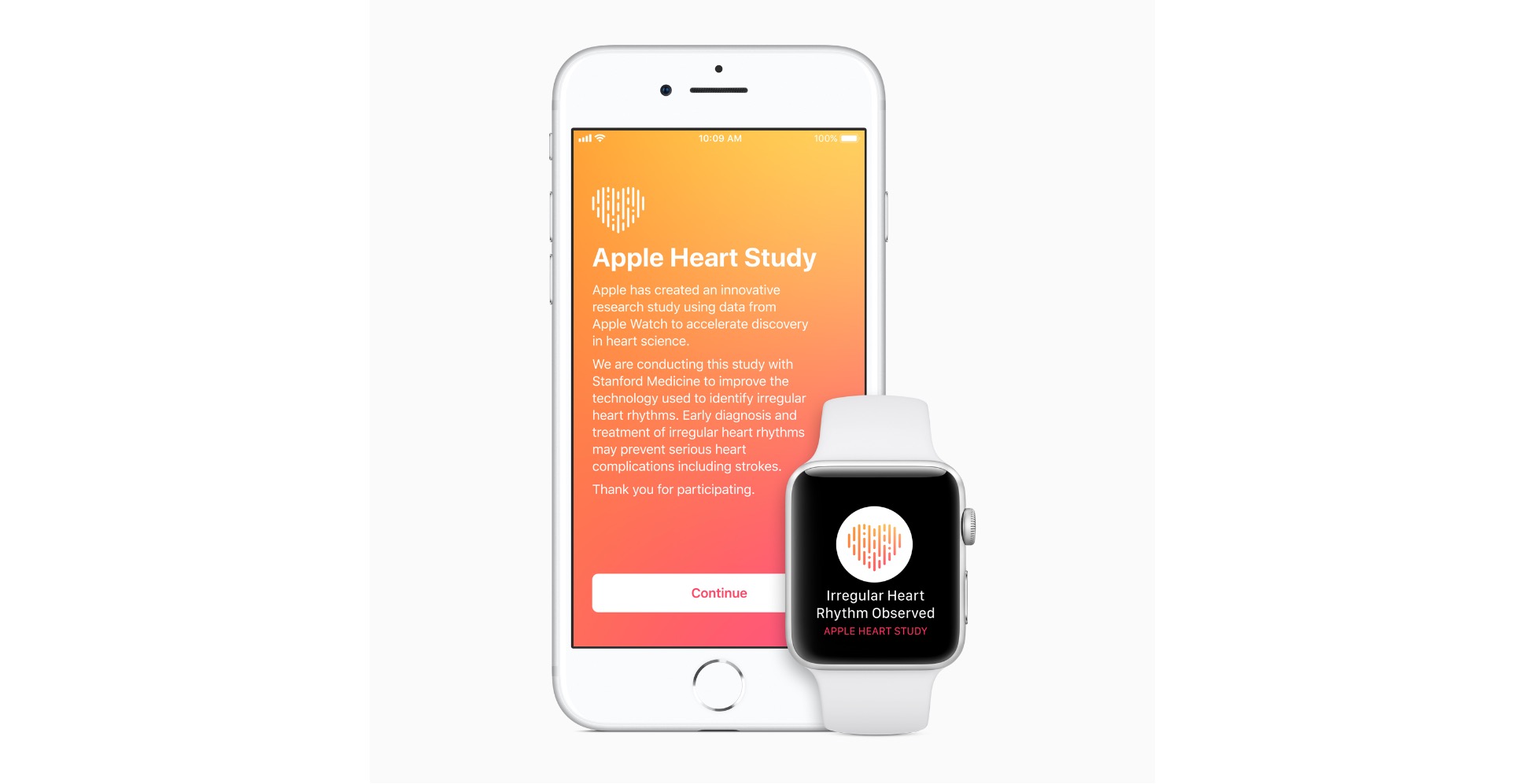Over 400,000 people participated in the Apple Heart Study, which used the Apple Watch to collect irregular heart rhythm data from participants for eight months. When an irregular rhythm was detected and suggested the possibility of arterial fibrillation, the Watch sent the user a notification. Study participants who got the notification were contacted telephonically by a doctor and given an electrocardiogram patch for further monitoring.
This weekend, Stanford Medicine reported the results of the study at the American College of Cardiology’s Annual Scientific Session and Expo in New Orleans. The study showed that 0.5% of participants received irregular rhythm notifications putting to rest concerns in some quarters that the Apple Watch’s sensor would overburden health professionals with false positives. In a press release, Jeff Williams, Apple’s Chief Operating Officer said:
We are proud to work with Stanford Medicine as they conduct this important research and look forward to learning more about the impact of Apple Watch alongside the medical community. We hope consumers will continue to gain useful and actionable information about their heart health through Apple Watch.
We’re still in the early days of the potential healthcare benefits of wearable devices like the Apple Watch, and it’s encouraging to see results like these, which show the potential good that can come from arming people with information to help them get the care they need.


